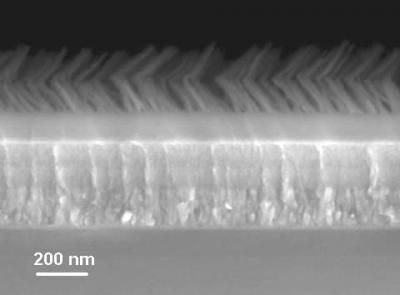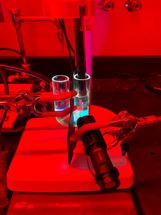MacroChem Announces Initiation of Open-Label Continuation Phase 3 Study Of Topical Erectile-Dysfunction Drug
MacroChem Corporation (Nasdaq: MCHM) announced today that it has begun an "open-label" continuation study of Topiglan(R), its investigational topical drug for the treatment of male erectile dysfunction ("ED"). ED is a largely vascular-related disorder that prevents more than 30 million American men from attaining and maintaining intercourse-capable erections. In the clinical trial announced today, patients who have completed the randomized and blinded pivotal phase 3 trial of Topiglan can elect to receive Topiglan for an extended period.
Topiglan differs from current and investigational oral drugs for erectile dysfunction in that it is a topical gel, applied directly to the glans ("head") of the penis. Unlike the active ingredient in Viagra(R) and most investigational ED drugs, the active ingredient in Topiglan -- alprostadil -- has no history of interacting with cardiac drugs, and can be used in patients currently taking organic nitrate drugs for the treatment of heart disease. As a result, MacroChem's Topiglan trial included men who would not be candidates for Viagra or any similar oral drug.
Topiglan combines alprostadil with SEPA(R), MacroChem's patented drug-absorption-enhancement agent, which enhances the penetration of sufficient alprostadil through the skin, to enter the blood vessels of the penis, inducing an erection. Ordinarily, to use alprostadil, men must either inject the drug into the shaft of their penis with a hypodermic needle, or insert it as a suppository into their urethra, using a catheter-like device.
The ongoing Topiglan trial involves 30 clinical sites with 460 men randomized to Topiglan, or placebo. Patients are given a preparation to take home, and apply to their penis prior to attempting intercourse -- not knowing whether they are receiving active drug or a placebo. Neither MacroChem nor the participating physicians or patients will know the results of this pivotal trial until the study formally ends, and the results are "unblinded" and interpreted.
In the new study announced today, patients who have completed 16 weeks in the blinded study are offered the opportunity to continue as recipients of Topiglan, no matter whether they were in an active or the placebo arm of the pivotal trial.
"We are very pleased with the progress of the pivotal trial, and especially, that we now have former pivotal-trial patients freely electing to continue using Topiglan as their sole ED drug," said Alvin J. Karloff, chairman and CEO of MacroChem. The Topiglan protocol forbids participating patients from taking any other ED drug while they are taking the investigational MacroChem product.
Patients who have completed the Topiglan trial can receive up to 20 doses of Topiglan per month under the company's authorized open-label study. To continue receiving Topiglan, they must agree to continue keeping a record of their success in engaging in intercourse each time they use Topiglan, and to report any side effects they note while using the drug.
MacroChem specializes in formulating drugs that address large and unmet medical needs. Following a capital infusion of more than $20 million in 1998, the company restructured itself from its contract R&D origins to develop proprietary drugs based on its patented absorption-enhancement technology, SEPA(R). SEPA temporarily neutralizes the absorption-barrier effect of the outer lipid layer of mammalian skin, known as the stratum corneum.
Over the past decade, MacroChem has invested more than $20 million in laboratory studies that demonstrate the absence of significant toxic or carcinogenic potential for SEPA. Although SEPA is an inert excipient, MacroChem has taken an unusual step of treating SEPA as if it was a drug, collating its data into a 47-volume drug master file (DMF), submitted to the FDA. MacroChem believes there is no other drug absorption enhancer in the world with a comparable safety and performance profile to that of SEPA.
Most read news
Other news from the department research and development

Get the chemical industry in your inbox
By submitting this form you agree that LUMITOS AG will send you the newsletter(s) selected above by email. Your data will not be passed on to third parties. Your data will be stored and processed in accordance with our data protection regulations. LUMITOS may contact you by email for the purpose of advertising or market and opinion surveys. You can revoke your consent at any time without giving reasons to LUMITOS AG, Ernst-Augustin-Str. 2, 12489 Berlin, Germany or by e-mail at revoke@lumitos.com with effect for the future. In addition, each email contains a link to unsubscribe from the corresponding newsletter.




























































